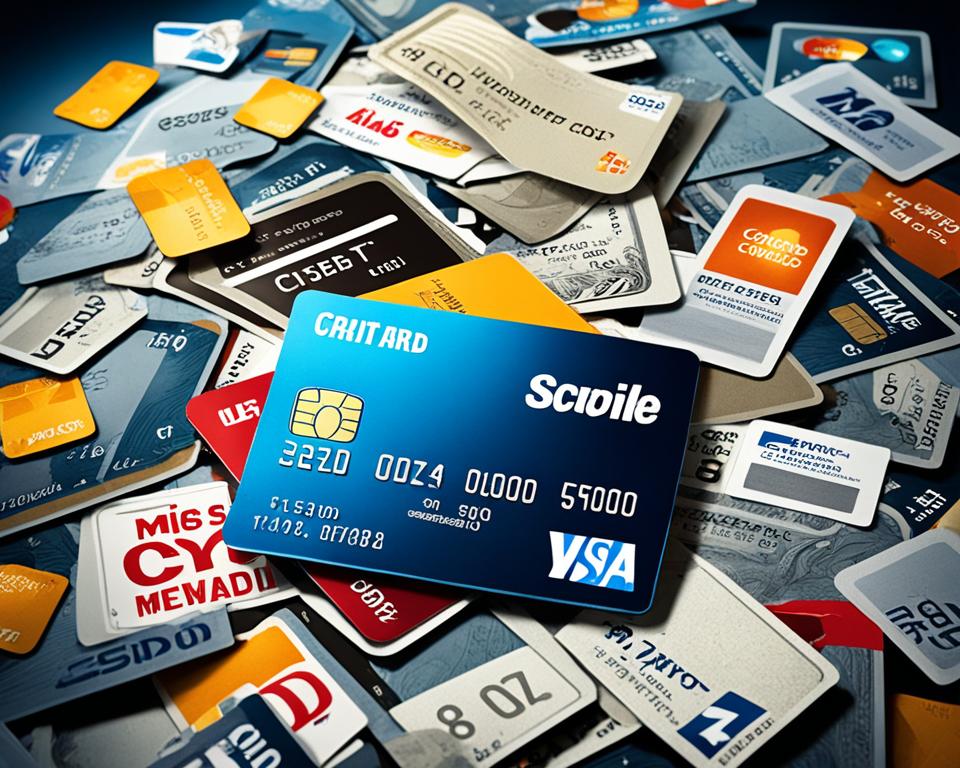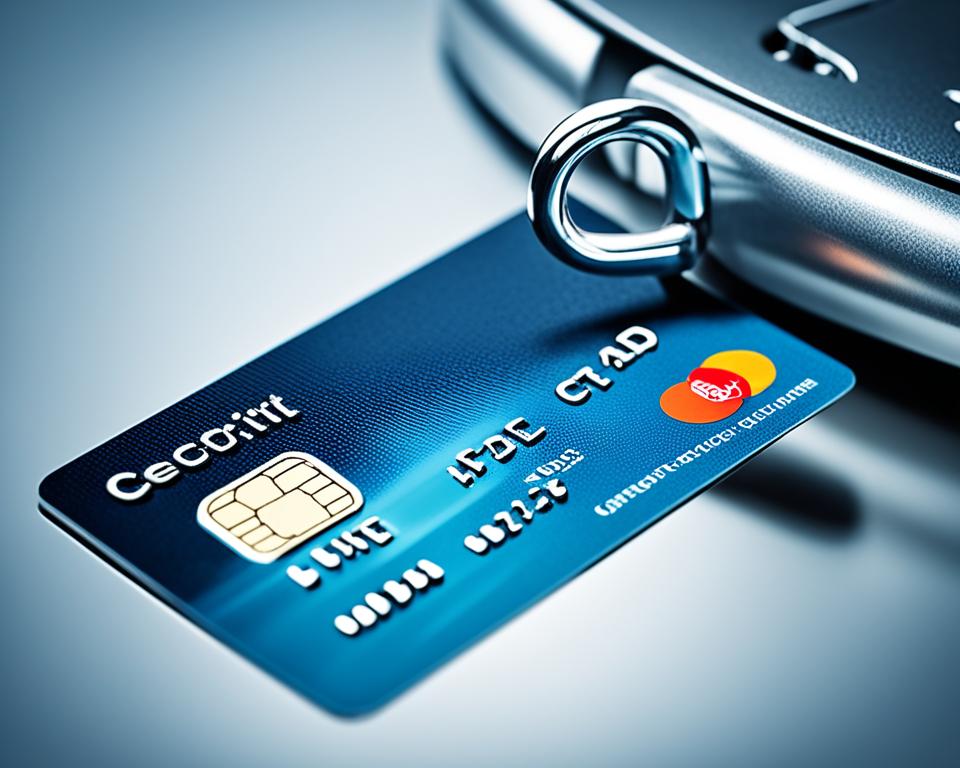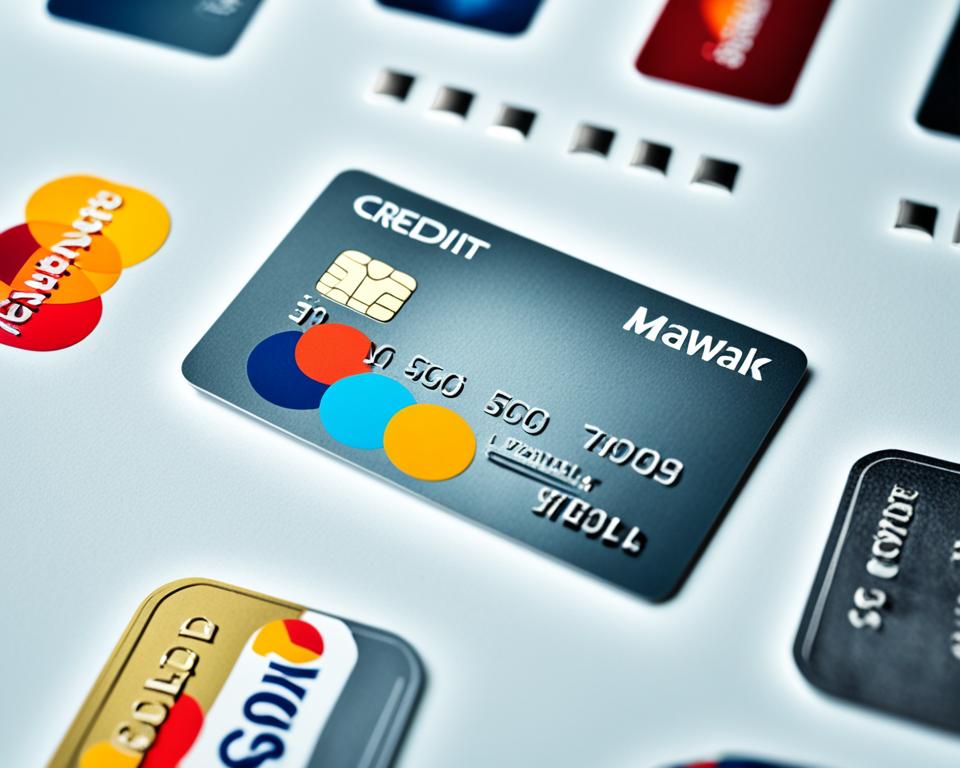The allure of credit card rewards has captivated consumers across the United States for years, offering an enticing range of rewards points, cashback options, and travel perks. These rewards programs often emerge from the strategic branding of credit bureaus and card issuers, who collaborate to roll out personalized, prescreened offers to potential cardholders with alluring credit card benefits. In the art of financial enticement, these rewards aim to both reward loyalty and stimulate spending.
However, the world of credit card incentives is not without its intricacies. They present a balancing act where the pros and cons must be carefully weighed. While cardholders may enjoy a host of benefits, they also navigate the challenges of unsolicited offers, privacy concerns, and the ever-present risk of identity theft. Making informed choices in this landscape means understanding the full spectrum of the sophisticated credit card rewards system.
Key Takeaways
- Scrutinizing the balance between credit card rewards and their potential drawbacks is imperative.
- Prescreened offers deliver tailored credit card benefits and rewards points, yet vigilance over one’s personal data is necessary.
- Actively managing rewards programs can enhance financial experiences, providing tangible advantages.
- The convenience of card benefits also carries the responsibility of protecting oneself from identity theft.
- Discerning cardholders assess offers, aligning them with personal spending habits and financial goals.
Understanding Credit Card Rewards
Delving into the world of credit card advantages reveals a range of incentives designed to enhance the purchasing power and satisfaction of consumers. As tools of financial engagement, credit cards are not just payment instruments; they are gateways to a treasure trove of rewards that beckon savvy spenders. Beyond the convenience they offer, understanding the intrinsic value of these rewards credit cards is crucial for optimizing consumer benefits.
What are Credit Card Rewards?
Credit card rewards are essentially a form of thank-you note from card issuers to cardholders. These tokens of gratitude come in different forms — be it points, miles, or cash backs that enrich the cardholder’s experience. In a fusion of loyalty cultivation and spending encouragement, rewards credit cards offer these perks with the overarching goal of creating long-lasting cardholder relationships.
Types of Rewards Programs
The landscape of credit card perks is as diverse as it is dynamic. It houses a palette of rewards programs tailored to fit the varied lifestyles and spending behaviors of consumers. The ubiquitous general rewards cards serve as an all-rounder, offering a spectrum of benefits across multiple platforms. Branded cards, such as those partnered with airlines or hotel chains, seduce the customer with industry-specific bounties. Meanwhile, cashback cards entice with the immediate gratification of tangible returns on purchases.
How Credit Card Rewards Work
The mechanics of earning credit card perks are simple yet strategic. Utilization is key — every swipe or tap of the card is a step towards accumulating points or miles. These, much like currencies of commerce, can be redeemed for goods, services, or experiences that align with the cardholder’s aspirations or requirements. Among the best rewards credit cards, the programs flourish on the principle of spending as an investment towards a future boon — one where a dollar spent today spells a discount, upgrade, or reward tomorrow.
| Rewards Credit Card Type | Main Features | Typical Reward Scheme |
|---|---|---|
| General Rewards Cards | Flexible rewards that can be used in a variety of ways. | Points system redeemable for gifts, vouchers, or cash. |
| Branded Cards | Co-branded with airlines or hotels, targeting specific consumer interests. | Miles for flights or points for hotel stays and upgrades. |
| Cashback Cards | Retain a percentage of spending as cash. | Direct cashback on a monthly or annual spend threshold. |
As the credit card industry continues to evolve, the intricacies of these rewards programs also advance, challenging cardholders to stay informed and judicious in their credit card selection. Knowing the ins and outs empowers consumers to make choices that resonate best with their lifestyle, ensuring that each transaction brings an added value beyond the basics of credit.
The Allure of Rewards Credit Cards
The temptation of credit card rewards is a powerful draw for consumers looking to maximize the benefits from their everyday expenditures. With a diverse array of rewards programs to choose from, cardholders can accrue rewards points, miles, or cash back, translating their purchases into a series of potential savings or experiences.

These programs not only allow for a direct return on spending but also often include significant sign-up bonuses that can kickstart the earning process. Whether these rewards points are saved for future travel, merchandise, or used as a statement credit, they offer a unique opportunity to leverage spending into earning.
With the strategic use of rewards credit cards, spending is transformed into an investment towards future rewards, creating a compelling incentive for cardholders to consolidate their purchases with a single issuer or network. The key to success in this space is navigating and utilizing the rewards structure to its full extent, aligning with personal spending habits to extract the most value. Below is a comparison table of different types of rewards credit cards and their typical benefits:
| Type of Card | Points Rewards | Miles Rewards | Cashback Rewards |
|---|---|---|---|
| General Rewards Cards | Accumulate points for all purchases, redeemable across a variety of rewards. | Limited miles earning potential, usually through travel-related purchases. | Varying rates depending on spending categories, sometimes with rotating bonuses. |
| Travel-Focused Cards | Points mainly earned through travel-related expenses, often with higher earning rates. | Benefit from earning miles directly with affiliated airlines, redeemable for travel expenses. | Cashback may be lower in favor of travel-specific rewards and benefits. |
| Cashback Cards | Less emphasis on points in exchange for higher cashback percentages. | Rarely offer miles, as focus is on returning a percentage of spending in cash form. | High cashback rates, especially on everyday purchases like groceries or fuel. |
To effectively navigate the complexity of rewards credit cards, it is essential for consumers to stay attuned to the details of each card’s program. By prudently selecting a card whose benefits align with their regular spending, cardholders can ensure they are getting the best possible return on every dollar spent.
Evaluating the Benefits of Credit Card Perks
When it comes to credit cards, the associated perks have become a significant factor in choosing the right card. These seemingly small benefits can make a substantial impact by enriching the consumer’s lifestyle and providing financial advantages that go beyond simple transactions. In this section, we take a closer look at the types of rewards offered, emphasizing the value they add to the experience of the cardholder.
Travel and Airline Rewards
For those with wanderlust, rewards credit cards tailored to travel can turn expenses into exciting opportunities. From reduced airfares and complimentary hotel stays to upgrades and exclusive access to lounges, the incentives are hard to overlook. These travel perks are often accumulated through rewards points earned with each purchase, reinforcing the attractiveness of specific cards for frequent travelers.
Cashback Offers and Their Appeal
The simplicity and straightforward value of cashback offers are what draw many to these types of rewards credit cards. Earning a percentage back on purchases translates into direct monetary savings. This benefit can be particularly rewarding for those who frequently use their credit cards for daily expenses, as it accumulates to a substantial amount over time, underscoring the clear credit card advantages they provide.
Exclusive Access to Events and Services
Some credit card benefits include an air of exclusivity, offering cardholders invitations to private events, priority booking services, or concierge services. These perks cater to the preference for a premium experience, enhancing day-to-day transactions with a touch of luxury and a sense that one’s business is both appreciated and rewarded.
By carefully evaluating the various benefits associated with credit cards, consumers can tailor their choices to fit their lifestyles, ensuring that they reap the most value from their cards. Whether it’s for travel, saving on purchases, or enjoying the exclusivity of high-end services, credit cards offer a plethora of opportunities to enhance consumer experiences.
| Perk Category | Benefit | Typical Users |
|---|---|---|
| Travel and Airline Rewards | Points redeemable for flights, hotel stays, upgrades, and airport lounge access. | Frequent travelers and business professionals. |
| Cashback Offers | A return percentage of total purchases as cash, usually applied as a statement credit. | Daily spenders and budget-conscious individuals. |
| Exclusive Access to Events and Services | Invitations to special events, concierge services, and priority reservations. | Luxury-focused cardholders and experience seekers. |
The Dark Side of Credit Card Offers
While the shimmering promises of credit card offers can be attractive, it is essential to remain mindful of their associated credit card disadvantages. These pitfalls cleverly hide in the shadows of the perceived benefits, masquerading as harmless incentives while potentially harboring risks. One such covert risk is the deluge of unsolicited mail, including prescreened offers that not only clutter personal spaces but also take their toll on environmental sustainability. This excess of junk mail is more than an annoyance—it’s symptomatic of a consumption-driven culture with little regard for the long-term impact of waste.

Moreover, the circulation of personal information among credit card issuers and credit bureaus — all in the name of tailored marketing — raises red flags for data privacy. As consumers, vigilance is not just recommended; it is a critical practice in safeguarding one’s identity and financial well-being. The threat of identity theft looms large, casting a dark shadow over the exciting credit card offers that arrive in our mailboxes or inboxes. Such risks make it imperative to critically assess each offer, weighing its merits against the possibility of personal data being compromised.
- Unsolicited credit card offers contribute to environmental waste
- Prescreened offers raise data privacy and identity theft concerns
- Protecting personal information is crucial when dealing with credit card companies
Credit card offers wield a double-edged sword, cutting through the noise to offer potential financial advantages while inducing unwarranted anxiety about data security. In this intricate dance between benefit and risk, consumers must step carefully, ensuring that their steps towards financial perks do not lead them off the edge into the dark abyss of fraud and invasion of privacy. Ultimately, the appeal of vibrant brochures and alluring terms ceases when counterbalanced by the invaluable cost of one’s peace of mind and security.
Pros and Cons of Prescreened Credit Card Offers
As the buzz around prescreened credit card offers grows, it’s essential to navigate through their advantages and drawbacks with a discerning eye. These offers, sorted by credit card issuers using data from major credit bureaus, aim to present prequalified consumers with advantageous terms. The alluring credit card rewards and credit card benefits associated with these offerings are worth considering, yet caution is necessary as pitfalls do exist.
Sifting Through Unsolicited Mail
The arrival of unsolicited prescreened offers in one’s mailbox is a common occurrence. While they may be appealing, they also contribute to the ever-growing pile of mail cluttering our homes. The frequency at which they are received warrants a conversation about sustainability, as well as the implied consent to receive such marketing communications.
Identifying Better Financial Terms
On a more positive note, prescreened credit card offers are often bestowed with enticing financial terms that may surpass what’s available publicly. From competitive interest rates to generous credit card rewards, the potential cardholder finds themselves presented with a custom selection seemingly tailored to their creditworthiness. This facilitates an easier comparison shopping experience, where the best credit terms can be swiftly identified.
Assessing Privacy Risks
A chief concern emerging with prescreened offers relates to privacy. Sharing personal details across different entities heightens the risk of data breaches and identity theft. This concern places credit card users in a delicate balance between the temptation of exclusive credit card benefits and the paramount importance of personal information security.
| Consideration | Pros | Cons |
|---|---|---|
| Financial Terms | Customized offers with potential for better interest rates and rewards. | May lead to over-application for credit and financial strain. |
| Influence on Credit Score | Soft inquiry does not affect credit score if not pursued. | A hard inquiry upon acceptance could potentially lower credit score. |
| Mail and Privacy | Direct offers allow for easy comparison shopping. | Risks of identity theft and data privacy concerns, coupled with environmental impact of paper waste. |
| Approval Likelihood | High chance of approval since offers are based on prequalified information. | Reevaluation upon application may still result in rejection. |
The interplay between the advantages of prescreened credit card offers and their associated risks defines the level of engagement one might choose to have with them. It’s a delicate dance of leveraging potential credit card rewards against the implications of accepting such overtures. Consumers can empower their decision-making by exercising their right to opt out from prescreened offers, mitigating privacy risks, and trimming back the influx of unwanted mail. For those willing to wade through the offers, the rewards might just outweigh the annoyances and risks, but one thing is evident—it pays to be an informed cardholder in today’s credit landscape.
The Best Rewards Credit Cards for Different Users
Finding the ideal rewards credit card involves looking beyond marketing buzzwords to align anticipated credit card perks with financial habits and goals. Whether you’re a jet-setting executive or someone who favors digital checkouts for their daily caffeine fix, there’s a wealth of credit card rewards programs designed for your lifestyle. This selection process is vital in ensuring you reap the maximum benefits from your credit transactions without being blindsided by unexpected fees or rates.

Choosing Based on Spending Habits
One of the first steps to identifying the best rewards credit cards is to scrutinize your expenditure patterns. Adventurous souls who traverse the globe can benefit immensely from a card that translates miles into free flights or hotel upgrades. Conversely, home-centric spenders could find substantial value in a card that offers cashback on groceries and utilities. It’s not about finding a good rewards program — it’s about finding the right one for you.
Comparing Annual Fees and Interest Rates
While benefits are a crucial factor, understanding the cost is equally important. A card with enviable travel points might seem like an excellent grab, but if the annual fee eclipses your savings, it’s no longer the optimal choice. Compare cards based on their annual fees and interest rates vis-à-vis the credit card rewards they offer. Remember, a card with no annual fee might end up offering the most “rewarding” experience for individuals who prioritize savings over lavish perks.
| Credit Card Type | Best For | Annual Fee | Rewards Features |
|---|---|---|---|
| Travel Points Cards | Frequent Travelers | High | Miles accumulation, travel insurance, lounge access |
| Cashback Cards | Everyday Shoppers | Low or None | Percentage back on purchases, rotating category bonuses |
| General Rewards Cards | Flexible Spenders | Variable | Points on all purchases, redeemable in various ways |
At the heart of the matter, opting for the best rewards credit cards becomes a clear-cut decision when you align your financial practices with credit card offerings, considering the full picture from credit card perks to fees and rates. The pinnacle of credit card savviness rests in this personalized approach, blending lifestyle compatibility with fiscal prudence.
Credit Card Rewards: Pros and Cons
The landscape of personal finance is often dotted with opportunities to amass credit card rewards, which promise to stretch the value of each dollar spent. Understanding the nuanced balance of these rewards’ pros and cons empowers consumers to extract the most juice from rewards programs, while cautiously navigating through the potential financial pitfalls that accompany them.
Maximizing Benefits While Minimizing Costs
On one hand, credit card rewards offer an appealing array of benefits that can inject added value into regular spending habits. Accruing cash back, racking up points, and soaking in travel perks all stand as testament to the advantages of leveraging credit card usage. Moreover, enticing sign-up bonuses and powerful purchase protections contribute to the allure of these financial tools, providing compelling reasons to choose one card over another.
Conversely, the shiny veneer of rewards programs may conceal less desirable features such as steep annual fees or high-interest rates that accrue when balances linger unpaid. Additionally, restrictions on how and when rewards can be redeemed can punctuate the experience with frustration, dampening the excitement around accumulating points or cash back.
To navigate this dualistic terrain, consumers must adopt a strategic approach by choosing credit card rewards that align with their lifestyle and spending patterns, diligently paying off card balances each month to bypass interest, and thoroughly digesting the terms associated with redeeming rewards. This savvy management of credit cards ensures that maximizing benefits doesn’t equate to maximized costs.
Navigating the pros and cons of credit card rewards calls for a balance of strategic spending and vigilant management:
| Aspect | Pros | Cons |
|---|---|---|
| Earning Potential | Accumulate valuable points, cash back, and travel perks. | Benefits often tied to spending thresholds that may encourage overspending. |
| Sign-Up Bonuses | Attractive initial rewards that can significantly boost points balance. | High spending requirements to unlock bonuses could lead to financial strain. |
| Redemption Flexibility | Options to redeem rewards for a variety of services and products. | Limits and blackout dates can restrict reward usage. |
| Annual Fees | May be justified by the value of rewards earned throughout the year. | Can offset the advantages if not balanced by sufficient rewards earning. |
| Interest Rates | Some cards offer low introductory APRs for new cardholders. | High APRs can accumulate significant interest on unpaid balances. |
In the pursuit of financial wisdom, individuals will find that maximizing benefits of credit card rewards is an art form that flourishes under the stewardship of informed and deliberate decision-making. This nuanced dance, with rewards and costs as partners, represents the ongoing cycle of consumer empowerment in managing personal finance triumphantly.
Security Aspects of Reward Credit Cards
While the appeal of reward credit cards lies in the myriad of benefits they offer such as cashback, miles, and points, attention must also be directed towards the embedded security protocols safeguarding cardholders. The inherent risks associated with financial transactions require robust credit card security protocols to be in place, ensuring that the rewards do not come at the cost of compromised personal information. In the pursuit of financial perks, cardholders should never sideline the vital importance of identity theft prevention and credit card fraud protection.

Preventing Identity Theft
Identity theft prevention is a cornerstone in the architecture of credit card security. Vigilant cardholders are the first line of defense against identity thieves who may try to exploit offers and rewards as a gateway to sensitive data. Steps such as shredding unneeded financial documents, including prescreened credit card offers, and secure management of mail are proactive measures in safeguarding against identity theft. Furthermore, monitoring credit reports regularly allows cardholders to catch and address unauthorized inquiries or accounts swiftly. The aim is to keep personal information as secure as the rewards are enticing.
Credit Card Fraud Protection Features
Financial institutions have vested interests in maintaining customer trust, and hence, they have fortified reward credit cards with multiple layers of fraud protection features. From real-time transaction monitoring to alerting cardholders of unusual spending patterns, these features act as a sentinel against credit card fraud. In addition, measures such as setting up travel notices, using secure online portals for transactions, and opting for cards equipped with EMV chip technology further reinforce the fortification against potential breaches. It is the collaboration between savvy consumers and technologically equipped financial providers that shore up the defenses against fraud.
In sum, while reward credit cards offer a plethora of attractive benefits that can sweeten the deal of spending, it is essential that these financial tools are complemented by state-of-the-art security measures and vigilant practices by cardholders. As rewards are accumulated and enjoyed, continuous prioritization of security will ensure that the only compromise made is on spending, and not on the protection of one’s identity and financial integrity.
Credit Card Advantages for the Savvy Shopper
For the savvy shopper, the modern credit card is more than just a piece of plastic—it’s a sophisticated financial tool brimming with credit card advantages. These advantages are designed to amplify convenience, empower expense management, and offer exceptional rewards. Let’s explore the myriad of credit card benefits that savvy shoppers can leverage to enhance their purchasing experiences.
Imagine a world where every dollar spent not only contributes to acquired needs but also furthers financial goals. That’s the world credit card companies are paving for savvy shoppers. These cards go beyond traditional benefits, offering user-friendly mobile apps that make tracking spending a breeze. No longer are consumers bound to monthly statements; real-time spending insights are now at their fingertips.
In an age where every cent matters, many credit cards are stepping up to offer no annual fee options. This particular benefit significantly reduces the cost of card ownership, making it easier for consumers to enjoy the rewards without the drawback of a yearly charge. Along with this, savvy shoppers can secure cards with introductory APR offers, allowing for larger purchases to be made upfront without the immediate burden of interest.
Credit cards also shine as tools for effective expense management. Their inherent flexibility offers the ability to spread significant costs over time, facilitate online purchases, and secure reservations. This level of control over finances is a cornerstone of modern fiscal responsibility and is especially valuable in managing monthly budgeting and expenses.
| Feature | Description | Benefit to Savvy Shoppers |
|---|---|---|
| No Annual Fee | Credit cards that do not charge a yearly fee for card ownership. | Reduces overall cost, maximizing savings on purchases. |
| Introductory APR | Low or 0% interest rates for an initial period post-card issuance. | Allows for initial high purchases with minimal financial impact. |
| User-Friendly Mobile Apps | Apps that provide easy tracking of spending and account management. | Enables real-time budget monitoring and financial planning. |
| Expense Management | Capability to effectively manage monthly expenses and cash flow. | Enhances personal finance control and goal achievement. |
In conclusion, savvy shoppers can find a myriad of credit card advantages that transcend traditional rewards. When used wisely, these cards can become a powerful ally in the quest for financial optimization. By adopting cards that align with personal financial strategies, savvy shoppers can attain an exceptional degree of financial flexibility and convenience.
Essentials of Credit Card Rewards and Bonuses
The intricate tapestry of credit card rewards and sign-up bonuses is a magnet for consumers looking to optimize their financial tools. Such rewards can shape the very way we spend and save, offering an extra layer of value to our purchases. However, these incentives are often shrouded in conditions that require a keen understanding and strategic approach to fully leverage their potential.
Sign-up Bonuses and Their True Value
The honeymoon phase of any credit card relationship often begins with an enticing sign-up bonus. This upfront offering, ranging from rewards points to cash-back injections, is designed to sweep cardholders off their feet. Yet, the true value of these credit card bonuses lies in their congruence with one’s usual spending habits. The caveat being, if these bonuses demand a spending spree that deviates from one’s budget, their initial glamour may fade into fiscal stress.
Long-term Rewards vs. Short-term Incentives
In contrast to the immediate gratification of sign-up bonuses, long-term rewards programs are the pillar of a fruitful cardholder experience. These programs are tailored to reward ongoing loyalty and sustained spending patterns, but their value can only be maximized if aligned with the cardholder’s lifestyle and financial behavior. A card that rewards dining and travel might suit a bon vivant, while a grocery-focused rewards program would better serve the homebody chef.
| Reward Type | Description | Value for Cardholder |
|---|---|---|
| Sign-Up Bonus | One-time offer provided upon opening the card or reaching an initial spending threshold | Immediate benefit, best suited for those who were planning on reaching the spending threshold anyway |
| Travel Rewards | Points or miles earned on travel-related purchases | Long-term value for frequent travelers, maximizing travel and lifestyle benefits over time |
| Cashback Rewards | A percentage of spending returned as cash | Continual return on everyday spending, ideal for consistent credit card users |
The gateway to the realm of acquiring credit card rewards requires that one not be dazzled solely by the initial display of generosity. Instead, an informed cardholder must gaze further into the horizon — to the potential of enduring rewards that sustainably align with one’s financial journey.
Strategies for Smart Credit Card Rewards Usage
In a financial landscape abundant with reward opportunities, making astute use of credit card points versus liquid cash can determine the extent of their benefits. A keen understanding of the rules governing points expiry and redemption is essential in bolstering one’s fiscal prudence. Below are strategies aimed at honing smart credit card usage and optimizing the acquisition of rewards points, avoiding the dreaded consequence of points expiry.
When to Use Points vs. Cash
The decision to redeem points or pay with cash hinges on the relative value obtained. A savvy approach involves calculating the cash equivalent of points for each potential redemption and contrasting this with current cash offers. Look to redeem points in instances where they exceed the value offered by cash payments, particularly during promotions where point value may surge. Conversely, preserve points when cash transactions yield discounts or advantages that surpass the benefits of point redemption.
Navigating Points Expiry and Redemption Rules
Accumulated points can often become a lost treasure if not utilized before the expiry date. To prevent such a loss, it’s imperative to mark the expiration dates and plan redemptions well ahead of these deadlines. Pay attention to program changes, which may adjust the shelf life of points, and engage in card activity that may extend or renew point lifespan. Always review redemption rules to ensure maximized returns on points and avoid needless redemptions that devalue the rewards.
| Reward Strategy | Description | Benefit |
|---|---|---|
| Points Valuation | Assess the dollar equivalent of points for various redemption options. | Ensures points are used when their value maximizes the benefits. |
| Redemption Planning | Monitor expiry dates and strategically plan redemptions around them. | Prevents losing accumulated rewards due to expiry dates. |
| Program Updates | Stay updated on any changes to the points system or rewards structure. | Keeps cardholders informed to make timely and beneficial redemption decisions. |
| Account Activity | Engage in regular card use to possibly extend the life of points. | Maintains the validity of accumulated points and delays expiry. |
| Rules Review | Thorough understanding of redemption processes and restrictions. | Avoids inefficient redemptions and maximizes reward utilization. |
Conclusion
In wrapping up our exploration of the multifaceted world of credit card rewards, we observe a landscape where earning points, cashing in on cashback, and unlocking a myriad of perks can significantly enhance one’s fiscal experience. However, these attractive offerings don’t come without their fair share of homework for the cardholder. The key to wielding a credit card to one’s advantage lies in making informed decisions that balance the allure of instant rewards with the long-term implications of fees and interest rates.
It’s evident that the potential of credit card rewards serves up a compelling proposition. Yet, cardholders who aspire to thrive in this rewards-rich environment must navigate it with strategic acumen. By aligning credit card selections with one’s personal spending habits and life goals, individuals position themselves to reap the full spectrum of benefits these financial tools have to offer. It’s less about tempting offers and more about how these align with individual financial strategies that keep both the bottom line and the joy of rewards in sight.
Ultimately, success in leveraging credit card rewards comes down to a disciplined approach – paying off balances in full to avoid interest, fully understanding the perks and their redemption methods, and utilizing the rewards before they expire. This robust approach to credit card usage ensures that individuals aren’t just chasing points but are earning tangible value with each transaction, enriching their financial experiences in a world where savvy spending and reward harvesting go hand in hand.
FAQ
What are Credit Card Rewards?
Credit card rewards are incentives provided by card issuers to encourage spending and maintain loyalty. These can come in the form of points, cash back, or miles, which cardholders earn through purchases and can redeem for various benefits.
What Types of Rewards Programs are Available?
Rewards programs vary and include general rewards cards, branded cards specific to airlines or hotels, and cashback cards. Each type has its own set of rules for earning and redeeming rewards.
How do Credit Card Rewards Work?
Credit card rewards work by accumulating points, miles, or cashback on purchases made with the rewards credit card. These rewards are then redeemable according to the specific program rules set by the card issuer.
What are the Advantages of Travel and Airline Rewards?
Travel and airline rewards offer benefits such as reduced airfares, complimentary hotel stays, and access to exclusive airport lounges. These perks make them particularly valuable for frequent travelers.
What Appeal do Cashback Offers Have?
Cashback offers provide a straightforward way to earn a percentage back on purchases, leading to potential savings over time. They are easy to understand and can be an effective way to get rewarded for everyday spending.
What is the Significance of Exclusive Access to Events and Services?
Exclusive access to events and services offers cardholders a sense of exclusivity and can enhance their lifestyle through special treatment and premium experiences not available to the general public.
What are the Disadvantages of Credit Card Offers?
Credit card offers can flood consumers with unsolicited mail, contribute to the risk of identity theft, and raise data privacy concerns as personal information is circulated among entities.
What are the Pros and Cons of Prescreened Credit Card Offers?
The pros include targeted offers that may have better rates and a higher chance of approval without affecting the credit score. The cons are potential clutter from junk mail, identity theft risks, and privacy issues related to the sharing of personal data.
How Should One Choose the Best Rewards Credit Card Based on Spending Habits?
When choosing a rewards credit card, consider which type of reward—travel points, cashback, etc.—best fits your lifestyle and spending habits. Look for cards with rewards that align with your regular purchases and financial goals.
What Factors Should Be Considered When Comparing Annual Fees and Interest Rates?
Evaluate whether the value of the rewards offsets the cost of annual fees and ensure the interest rates are competitive, especially if you’re likely to carry a balance. Compare these costs against potential earnings from the rewards.
How Can One Maximize Benefits While Minimizing Costs with Credit Card Rewards?
To maximize rewards, choose cards with the most beneficial reward structures for your needs, use the card for regular purchases, and pay off the balance each month to avoid interest charges. Also, take advantage of any sign-up bonuses and special offers.
How Can Identity Theft Be Prevented When Using Reward Credit Cards?
To prevent identity theft, opt out of prescreened offers, monitor your credit card statements regularly for unauthorized transactions, and take advantage of the card’s fraud protection features.
What Fraud Protection Features do Credit Cards Offer?
Credit cards often offer zero liability protection, real-time fraud monitoring, alerts for unusual activity, and the ability to freeze the card if it’s lost or stolen. These features help protect against unauthorized transactions.
What Credit Card Advantages Should Savvy Shoppers Look For?
Savvy shoppers should look for cards with no annual fee, a competitive APR, rewards that match their spending patterns, built-in budgeting tools, and additional perks such as extended warranties and purchase protection.
How do Sign-up Bonuses and Long-term Rewards Differ in Value?
Sign-up bonuses offer a one-time reward for meeting initial spending requirements, while long-term rewards build up over time based on continuous card use. The long-term value depends on how well the rewards align with the cardholder’s ongoing spending habits.
What are Smart Strategies for Credit Card Rewards Usage?
Smart strategies include knowing when to redeem points for maximum value, staying updated with the program’s rules, utilizing points before they expire, and balancing the use of points with cash payments when necessary to optimize rewards.
How Should Points Expiry and Redemption Rules Influence Credit Card Use?
Be conscious of your credit card’s points expiry dates and redemption rules to ensure you don’t lose accumulated rewards. Plan purchases and redemptions to use points effectively and avoid expiration.





